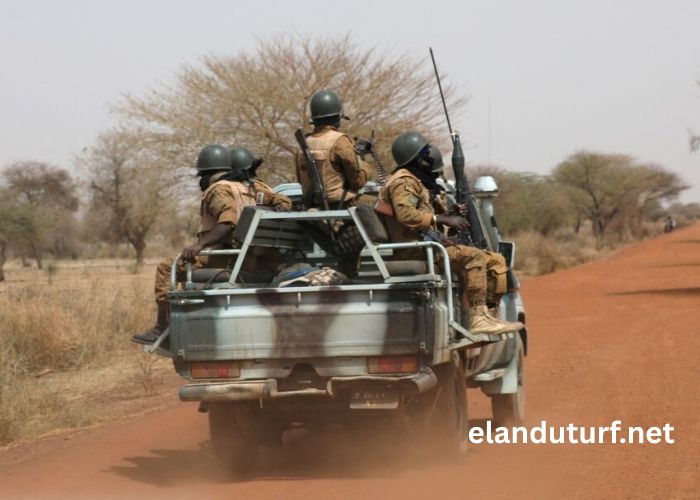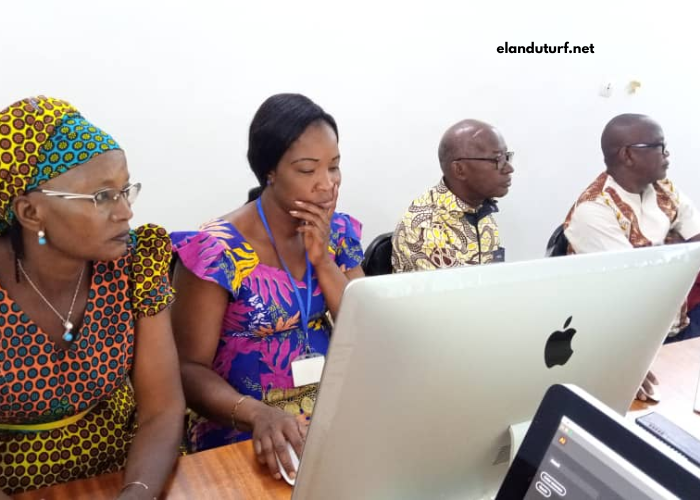Burkina Faso has faced a tumultuous and challenging period over the past few years, with escalating security issues and increasing violence. The latest development, Attaque Au Burkina Faso Aujourd’hui, has drawn international attention as it is the latest chapter in the ongoing conflict that has plagued the country. These attacks are not only devastating for the local population but also pose a significant challenge for the country’s security forces and government. The impact of such incidents reverberates across the nation, affecting the lives of millions.
Understanding the full scope of Attaque Au Burkina Faso Aujourd’hui requires an examination of the root causes, the immediate consequences, and the broader implications on both a national and regional scale. In this article, we will explore the context of the attack, its aftermath, and how the Burkinabé government and international actors are responding to this crisis. We will also discuss how such attacks have reshaped the landscape of security in Burkina Faso.
What Led to the Attaque Au Burkina Faso Aujourd’hui?
The Attaque Au Burkina Faso Aujourd’hui is the result of several interwoven factors, including political instability, the rise of extremist groups, and regional conflicts. Over the years, Burkina Faso has faced increasing pressure from extremist organizations that have exploited the vulnerability of the country’s security forces. This attack marks the latest escalation in a series of violent acts that have taken place across the Sahel region in West Africa.
The rise of radicalized groups in the region, often linked to Al-Qaeda and ISIS, has exacerbated the security situation in Burkina Faso. These groups have taken advantage of the porous borders and weak state structures to launch coordinated attacks, targeting military outposts, civilian populations, and infrastructure. The Attaque Au Burkina Faso Aujourd’hui is likely connected to these broader trends, where extremist groups are looking to destabilize the region and challenge the government’s authority.
In addition to extremist violence, the country’s political instability has contributed to the worsening situation. The government’s struggle to maintain control over vast areas of the country has made it increasingly difficult to counter these attacks effectively. Poor infrastructure, limited resources, and the inability of the security forces to secure all regions of Burkina Faso have allowed armed groups to act with impunity, making such attacks more frequent and devastating.
How Have the Authorities Responded to the Attaque Au Burkina Faso Aujourd’hui?
In the wake of the Attaque Au Burkina Faso Aujourd’hui, the government of Burkina Faso has ramped up its efforts to combat the growing insurgency. This includes mobilizing the military and collaborating with international partners to increase security in the affected regions. Burkina Faso has long been a member of the G5 Sahel, a coalition of five West African countries working together to combat terrorism and instability in the region.
The government has also called for increased support from international allies, including France, the United Nations, and other regional powers. These international forces have already been involved in supporting Burkina Faso’s security efforts, but the severity of the attack has intensified calls for a more robust intervention. French forces, in particular, have been active in providing logistical support and intelligence to local military units to better combat insurgent groups.
On the domestic front, the Burkinabé authorities have emphasized the importance of strengthening community policing and intelligence-gathering networks. Local communities, which are often the first to feel the effects of violence, are seen as key partners in identifying and neutralizing threats before they escalate. However, the government’s response has faced criticism, particularly in relation to its ability to protect civilians in remote areas, where extremist groups can move freely and launch attacks without significant resistance.
The Attaque Au Burkina Faso Aujourd’hui highlights the challenge that governments face in balancing military action with the protection of human rights and the prevention of civilian casualties. The ongoing conflict is a delicate situation that requires careful management, with the international community playing a crucial role in stabilizing the region.
What Are the Humanitarian Impacts of the Attaque Au Burkina Faso Aujourd’hui?
The humanitarian consequences of the Attaque Au Burkina Faso Aujourd’hui are severe. Civilians are often the primary victims of these attacks, with communities displaced, homes destroyed, and livelihoods disrupted. The attack has led to an increased number of internally displaced persons (IDPs), who are fleeing violence and seeking refuge in areas considered safer by the government or humanitarian organizations.
Burkina Faso was already facing a humanitarian crisis before the Attaque Au Burkina Faso Aujourd’hui, with thousands of people in need of aid due to the ongoing violence. The UN and other organizations have been providing food, medical care, and shelter to those affected by the violence, but the scale of the displacement continues to increase. These refugees are often forced to live in overcrowded camps, where access to basic services such as healthcare, sanitation, and education is limited.
Furthermore, the attack has exacerbated the food security situation in the country. With the agricultural sector disrupted and trade routes cut off due to violence, many Burkinabé are struggling to find enough food. The closure of markets and the destruction of infrastructure have made it increasingly difficult for families to meet their basic needs, pushing many into deeper poverty.
The Attaque Au Burkina Faso Aujourd’hui has highlighted the fragility of the country’s social fabric, with communities torn apart by violence and instability. The long-term impact of these attacks will likely be felt for generations, as families are forced to cope with the loss of loved ones, the destruction of property, and the ongoing trauma caused by such violent acts.
What Is the Role of International Support in the Aftermath of the Attaque Au Burkina Faso Aujourd’hui?
International support has played a critical role in Burkina Faso’s response to the Attaque Au Burkina Faso Aujourd’hui. Burkina Faso is part of the G5 Sahel, a joint military effort involving five countries—Burkina Faso, Chad, Mali, Mauritania, and Niger—working together to combat terrorism and instability in the Sahel region. The G5 Sahel forces have been crucial in providing coordinated security responses to extremist groups.
Beyond the regional cooperation within the G5 Sahel, Burkina Faso has also relied on international aid and support from countries such as France and organizations like the United Nations. France, in particular, has been involved in counter-terrorism operations in the Sahel, providing military assistance and intelligence-sharing to help local forces combat insurgents. However, this international intervention has been met with some local resistance, as some Burkinabé citizens view foreign military presence with suspicion.
Humanitarian organizations have also been vital in providing aid to displaced persons and vulnerable communities affected by the violence. The United Nations and other international bodies have called for increased support to ensure that those impacted by the Attaque Au Burkina Faso Aujourd’hui receive the necessary assistance. This includes food aid, medical support, and the rebuilding of infrastructure.
Despite these efforts, the situation remains dire, and the effectiveness of international support has been called into question. There is an urgent need for a comprehensive approach that combines military action with long-term development assistance and peacebuilding efforts to address the root causes of the conflict and ensure sustainable peace in the region.
What Are the Long-Term Implications of the Attaque Au Burkina Faso Aujourd’hui?
The long-term implications of the Attaque Au Burkina Faso Aujourd’hui extend far beyond the immediate aftermath of the attack. The escalation of violence threatens to further destabilize Burkina Faso and the broader Sahel region. As extremist groups continue to exploit the situation, the future of security in Burkina Faso looks uncertain.
Politically, the attack has placed immense pressure on the Burkinabé government to demonstrate its ability to protect its citizens. A failure to address the security situation could lead to further erosion of state authority, allowing extremist groups to gain more ground and influence. This could have dire consequences for the country’s stability and its relations with neighboring states.
Economically, the Attaque Au Burkina Faso Aujourd’hui will likely exacerbate the challenges the country already faces. The disruption of agricultural production, destruction of infrastructure, and increase in displacement will hinder economic growth and development, making it more difficult for the government to provide services and support to its citizens.
On a broader scale, the violence in Burkina Faso has the potential to spill over into neighboring countries, as extremist groups look to expand their influence. Regional instability is a significant concern, as countries like Mali and Niger are already dealing with similar issues, and the violence could spread if not contained.
Conclusion
In conclusion, the Attaque Au Burkina Faso Aujourd’hui serves as a stark reminder of the fragile security situation in the Sahel region. The attack highlights the complexity of addressing extremism, political instability, and humanitarian crises simultaneously. While international support and regional cooperation are crucial, long-term solutions require a comprehensive approach that focuses on security, development, and peacebuilding.
The aftermath of this attack will shape the future of Burkina Faso and the broader region, making it imperative for both local and international actors to work together to stabilize the situation and ensure the safety and well-being of affected populations.




